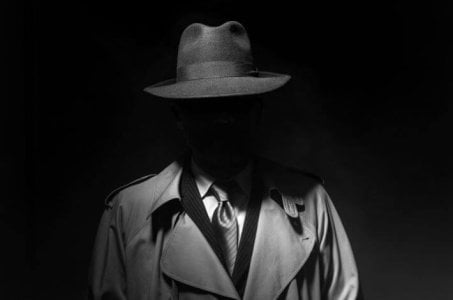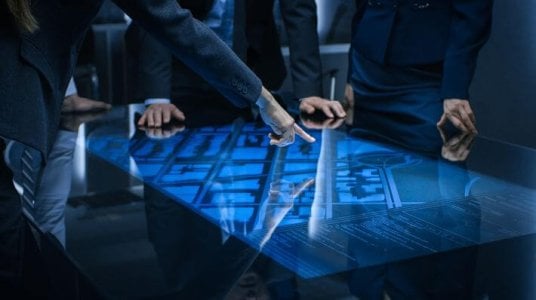Australia under siege? Judges, journalists, and military veterans targeted by spies
- Replies 9
If you think espionage is something that only happens in James Bond movies, then ASIO’s latest warning will make you think twice.
This comes after a recent report emerged that journalists, military veterans, and judicial figures are being targeted by foreign spy agencies at ‘unprecedented’ levels.
Who would’ve thought that amid the cost-of-living crisis, food supply shortages, and increased prices, Australia would have to worry about espionage next?
According to the annual threat assessment from Mike Burgess, the Director-General of the Australian Security Intelligence Organisation (ASIO), journalists, retired military personnel, and judicial figures have all become targets for foreign espionage agencies.
The country’s intelligence chief also revealed that a ‘hive of spies’ was removed from Australia in the past year who had recruited proxies and agents as part of a broader goal to steal sensitive information.
Now, the ASIO Boss has warned Aussies to be vigilant because the nation is allegedly experiencing the highest level of foreign interference, espionage, and terrorism in its history – surpassing the Cold War and the height of the Islamic State caliphate.
‘More hostile foreign intelligence services, more spies, more targeting, more harm, more ASIO investigations, more ASIO disruptions. From where I sit, it feels like hand-to-hand combat,’ Mr Burgess said.
He said that the ‘hive of spies’ they dismantled was bigger and ‘more dangerous’, which is why he had decided to highlight this case to ‘dispel any sense that espionage is some romantic Cold War notion’.
The Director-General also revealed a ‘sensational’ plot by an overseas intelligence service to covertly recruit senior Australian journalists using the offer of an all-expenses-paid study tour of the foreign country, where spies posing as local officials were expected to steal information and other important contacts.
There have been attempts to hack into ‘scores of Australian media outlets’ as well.
Luckily, this plan was foiled by ASIO before it could be put into action. However, it was advanced enough that the foreign power had recruited an Australian-born ‘lackey’ who was well-versed and well-connected in political and business circles.
The lackey was also publicly connected with the overseas governments. This person was then expected to introduce the journalists to ‘local officials’ who were alleged to be ‘spies in disguise’.
The spies would use these opportunities to try and elicit insights on political, economic, and defence issues and identify any vulnerabilities that could be useful for later.
This plot was part of a ‘concerning uptick’ in the targeting of journalists and the media industry, with the influence and recruitment taking many forms. He also claimed that multiple nations were behind the spy activities in the country but ASIO had adopted a more aggressive approach to counter these espionage tactics.
Without naming the country involved, Mr Burgess claimed that the spies have been working undercover and some were ‘put in place years earlier’.
‘It was obvious to us that the spies were highly trained because they used sophisticated tradecraft to try to disguise their activities. They were good – but ASIO was better,’ Mr Burgess proudly stated.
Mr Burgess also revealed that a small number of judicial figures had been subjected to suspicious approaches, which were suspected (but not confirmed) to be connected to foreign intelligence operations.
Although it sounds like the plot of the next 007 movies, Mr Burgess claimed that ASIO recently foiled attempts by two foreign powers to physically harm Australian residents who were critics of their regimes.
‘In one case, the intelligence service started monitoring a human rights activist and plotted to lure the target offshore, where the individual could be “disposed of”. In another, a lackey was dispatched to locate specific dissidents and “deal with them”,’ he explained.
The ASIO boss revealed that he has been directly pressured by members of the academy, business identities, and public servants to ‘ease up’ on ASIO’s foreign interference and espionage operations.
Mr Burgess stated that while he respected their views, their reasons for requesting the lax protocols were ‘flimsy’, such as ‘all countries spy on each other’, ‘we were going to make the information public anyway’, and ‘it’s no different to lobbying or networking’.
This report comes after it was announced that Australia’s preferred AUKUS submarine pathway was due within weeks, and according to Mr Burgess, there had been a ‘distinct uptick’ in the online targeting of people working in the country’s defence industry.
‘As we progress AUKUS, it's critical our allies know we can keep our secrets, and keep their secrets,’ he shared.
Months after Defence Minister Richard Marles ordered a review into reports of China allegedly trying to recruit former Australian pilots, Mr Burgess confirmed that former military personnel were being targeted to sell their training and expertise to foreign governments.
‘In some cases, we and our partners have been able to stop the former insiders travelling overseas to provide the training, but in others, legal ambiguities have impeded law enforcement's ability to intervene.’

What are your thoughts on this report, members? Do you believe spies live among us? Let us know in the comments below!
This comes after a recent report emerged that journalists, military veterans, and judicial figures are being targeted by foreign spy agencies at ‘unprecedented’ levels.
Who would’ve thought that amid the cost-of-living crisis, food supply shortages, and increased prices, Australia would have to worry about espionage next?
According to the annual threat assessment from Mike Burgess, the Director-General of the Australian Security Intelligence Organisation (ASIO), journalists, retired military personnel, and judicial figures have all become targets for foreign espionage agencies.
The country’s intelligence chief also revealed that a ‘hive of spies’ was removed from Australia in the past year who had recruited proxies and agents as part of a broader goal to steal sensitive information.
Now, the ASIO Boss has warned Aussies to be vigilant because the nation is allegedly experiencing the highest level of foreign interference, espionage, and terrorism in its history – surpassing the Cold War and the height of the Islamic State caliphate.
‘More hostile foreign intelligence services, more spies, more targeting, more harm, more ASIO investigations, more ASIO disruptions. From where I sit, it feels like hand-to-hand combat,’ Mr Burgess said.
He said that the ‘hive of spies’ they dismantled was bigger and ‘more dangerous’, which is why he had decided to highlight this case to ‘dispel any sense that espionage is some romantic Cold War notion’.
The Director-General also revealed a ‘sensational’ plot by an overseas intelligence service to covertly recruit senior Australian journalists using the offer of an all-expenses-paid study tour of the foreign country, where spies posing as local officials were expected to steal information and other important contacts.
There have been attempts to hack into ‘scores of Australian media outlets’ as well.
Luckily, this plan was foiled by ASIO before it could be put into action. However, it was advanced enough that the foreign power had recruited an Australian-born ‘lackey’ who was well-versed and well-connected in political and business circles.
The lackey was also publicly connected with the overseas governments. This person was then expected to introduce the journalists to ‘local officials’ who were alleged to be ‘spies in disguise’.
The spies would use these opportunities to try and elicit insights on political, economic, and defence issues and identify any vulnerabilities that could be useful for later.
This plot was part of a ‘concerning uptick’ in the targeting of journalists and the media industry, with the influence and recruitment taking many forms. He also claimed that multiple nations were behind the spy activities in the country but ASIO had adopted a more aggressive approach to counter these espionage tactics.
Without naming the country involved, Mr Burgess claimed that the spies have been working undercover and some were ‘put in place years earlier’.
‘It was obvious to us that the spies were highly trained because they used sophisticated tradecraft to try to disguise their activities. They were good – but ASIO was better,’ Mr Burgess proudly stated.
Mr Burgess also revealed that a small number of judicial figures had been subjected to suspicious approaches, which were suspected (but not confirmed) to be connected to foreign intelligence operations.
Although it sounds like the plot of the next 007 movies, Mr Burgess claimed that ASIO recently foiled attempts by two foreign powers to physically harm Australian residents who were critics of their regimes.
‘In one case, the intelligence service started monitoring a human rights activist and plotted to lure the target offshore, where the individual could be “disposed of”. In another, a lackey was dispatched to locate specific dissidents and “deal with them”,’ he explained.
The ASIO boss revealed that he has been directly pressured by members of the academy, business identities, and public servants to ‘ease up’ on ASIO’s foreign interference and espionage operations.
Mr Burgess stated that while he respected their views, their reasons for requesting the lax protocols were ‘flimsy’, such as ‘all countries spy on each other’, ‘we were going to make the information public anyway’, and ‘it’s no different to lobbying or networking’.
This report comes after it was announced that Australia’s preferred AUKUS submarine pathway was due within weeks, and according to Mr Burgess, there had been a ‘distinct uptick’ in the online targeting of people working in the country’s defence industry.
‘As we progress AUKUS, it's critical our allies know we can keep our secrets, and keep their secrets,’ he shared.
Months after Defence Minister Richard Marles ordered a review into reports of China allegedly trying to recruit former Australian pilots, Mr Burgess confirmed that former military personnel were being targeted to sell their training and expertise to foreign governments.
‘In some cases, we and our partners have been able to stop the former insiders travelling overseas to provide the training, but in others, legal ambiguities have impeded law enforcement's ability to intervene.’
Key Takeaways
- Journalists, military veterans and judicial figures are being targeted by foreign espionage agencies at 'unprecedented' levels.
- ASIO boss Mike Burgess warned of 'a hive of spies' and hit out at former military personnel who have put 'cash before country'.
- ASIO also discovered scores of foreign attempts to hack into Australian media outlets as well as a 'lackey' being recruited to lure senior journalists overseas.










